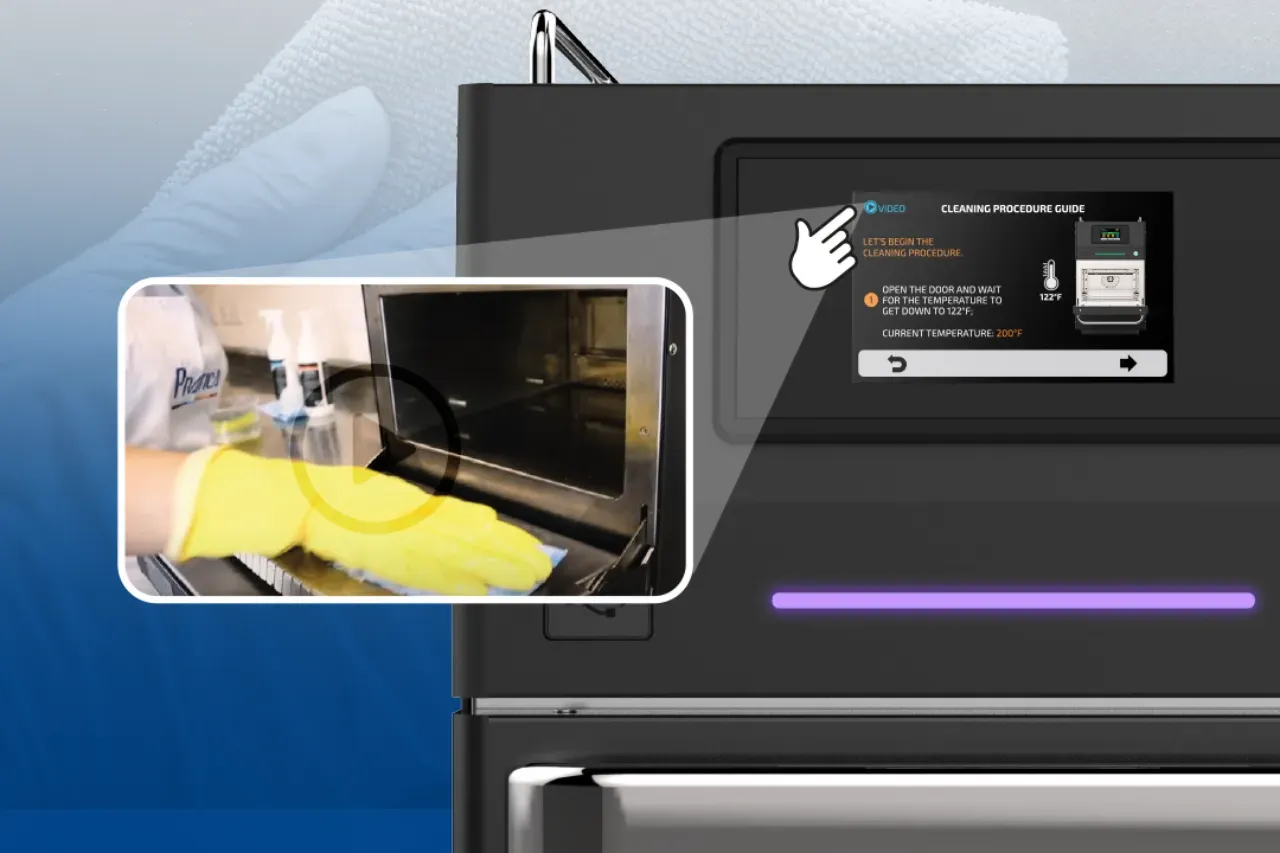In the foodservice sector, precision, hygiene, and energy efficiency depend on reliable equipment.
A well-cared-for Speed Oven helps keep production stable, prevents unexpected issues, and supports sustainable kitchen practices.
It also protects the reputation of the business, as customers expect safe handling and consistent quality.
Speed Ovens use microwave energy and impinged hot air to cook quickly and create even browning.
For this to work properly, the oven must stay clean, calibrated, and mechanically sound.
If care is ignored, the kitchen may face longer cooking times, downtime, reduced productivity, higher repair bills, and possible safety risks.
As energy and safety rules tighten, preventive maintenance becomes essential for compliant and efficient operations.
It helps the business stay compliant and competitive.
Understanding the Magnetron
The magnetron generates microwave energy.
Most Speed Ovens use two units, each able to work for thousands of hours.
Their lifespan, however, depends strongly on how the oven is programmed.
Key points
- Do not use 100% microwave power all the time.
- Begin with about 30% and adjust as needed.
- Balance microwave energy with impinged air for better results.
- Train the team so everyone understands how power levels affect cooking and equipment life.
These simple practices protect components, support food quality, and reduce premature wear.
Grease and Dirt: Hidden Risks
Grease inside the oven is more than a cleanliness issue.
It affects performance and safety.
Residues can reach the cavity, wave guides, and the stirrer.
This reduces heating efficiency and may cause overheating, smoke, odours, or even fire.
Grease also weakens the reflective quality of the stainless-steel cavity.
This reflection is essential for even microwave distribution. In Europe, these hygiene elements also relate to HACCP requirements.
Daily care
- Clean the oven every day.
- Remove debris during shifts when needed.
- Avoid abrasive cleaners that may damage surfaces.
These habits keep performance stable and help maintain compliance.
Safe Use of Accessories
Only use accessories approved by the manufacturer. This guarantees proper heating and protects internal components.
- Suitable materials
- Tempered glass
- Heat-resistant ceramic without metal
- Clayware tested for low microwave absorption
Unsuitable materials can cause arcing, damage the oven, reduce heating quality, or void the warranty.
Air Filter Care
The air filter prevents grease and dust from entering the ventilation system.
If it becomes clogged, the oven may overheat and damage electronic parts.
Recommendation
- Clean the air filter once a week.
- Replace it when necessary.
- This small step reduces breakdowns and avoids unnecessary energy use.
Recommended Cleaning Products and Tools
Prática offers cleaning products created specifically for Speed Ovens.
They support durability and daily hygiene.
Available options
- Oven Cleaner removes hardened grease without damaging the cavity.
- Oven Guard forms a protective layer that reduces future residue.
- Easy Clean Liner protects the cavity and can be washed easily with neutral detergent and water.
Benefits
- Protection of reflective and stainless-steel surfaces
- Reduced cleaning time
- Lower chemical consumption
- Safer and more sustainable operation aligned with European expectations
The Easy Clean Liner is especially useful for high-volume kitchens, such as quick-service restaurants or coffee chains.
Preventive Maintenance
To maintain warranty coverage and keep the oven performing well, Prática recommends technical inspections every six months.
During these visits, technicians check:
- Catalytic filters
- Magnetrons and wave guides
- Door seals and hinges
Skipping these checks increases risks and may conflict with warranty or insurance requirements.
Safety and Operational Restrictions
Some foods should not be cooked in a Speed Oven.
Raw items with high fat content, such as raw bacon, raw burgers, or chicken skin, can damage the catalytic converter.
Additional precautions
- Keep door seals and hinges clean.
- Follow instructions for catalytic filter cleaning.
- Keep the user manual available to the team.
- These actions support safe and consistent operation.
Saving Time and Money
Daily care is an easy way to reduce operating costs.
Clean surfaces, good airflow, and proper accessories allow the oven to work efficiently.
Long-term benefits
- Lower repair expenditure
- Longer life for magnetrons and filters
- Less downtime
- Fewer urgent service calls
- Reduced energy use
For busy kitchens, these benefits support stable production and better financial results.
A Political and Ethical Responsibility
Maintenance also reflects a company’s commitment to safety, sustainability, and responsible operation.
- Good practices support
- EU Green Deal goals through reduced energy waste
- European hygiene rules and HACCP frameworks
- Safe working environments through reduced overheating and smoke risks
These actions demonstrate professionalism and care for teams and consumers.
Building a Maintenance Culture
Caring for a Speed Oven is not complex. It only requires consistent habits, team training, and respect for manufacturer recommendations.
With daily cleaning, correct programming, regular inspections, and proper use, the oven delivers long-lasting performance. Maintenance becomes an ongoing practice that strengthens quality, safety, and operational excellence.





